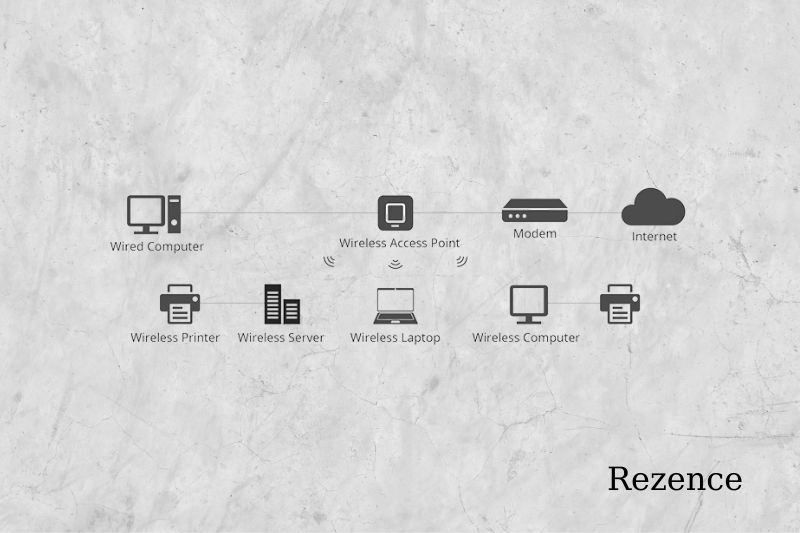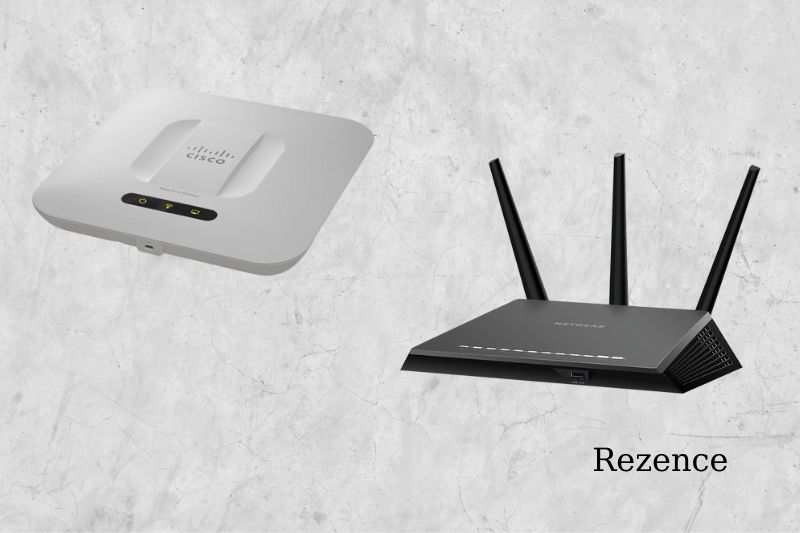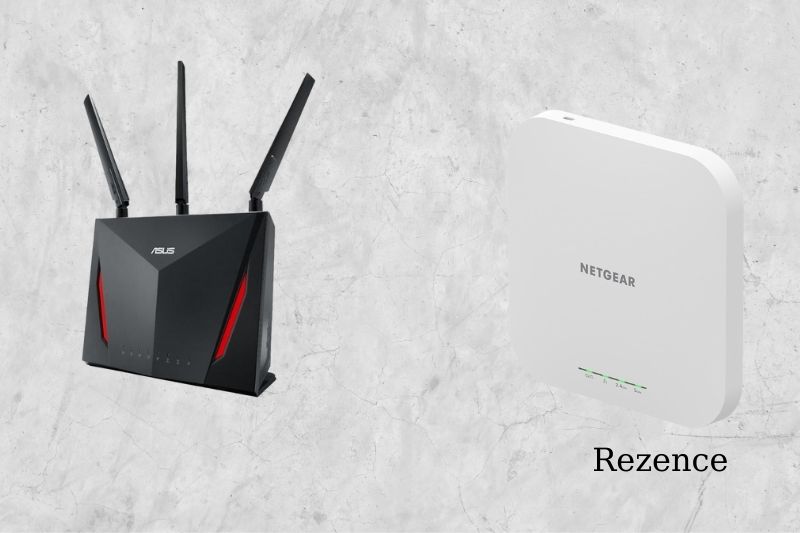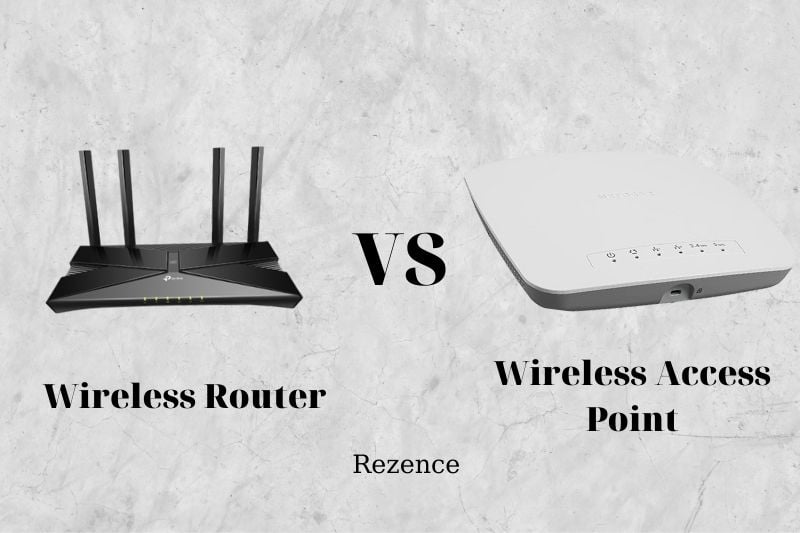Still confusing to choose wireless router vs access point? Then, you have come to the right page. Here, this article will detail everything about this comparison topic. Let’s get started!
What Is A Wireless Router?

A router is a network device capable of transferring data wirelessly or wired. The router can direct the network’s incoming and outgoing traffic efficiently because it is an intelligent device.
Traditionally, routers were connected to other LAN devices via Ethernet cable. This was for wired networking. Wireless routers are becoming increasingly popular in small offices and homes because they offer a simple installation without cabling. Your modem is usually provided by your Internet Service Provider (ISP)
These router models are network devices that connect wirelessly to WiFi-enabled devices such as smartphones, tablets, laptops, and other devices.
They can also be used to make Voice over IP (VoIP), calls and support IPTV/digital television services for enterprise routers. They also include firewalls and password protection to protect against potential threats from outside the LAN.
What Is A Wireless Access Point?

An access point acts as a gateway for users to connect to a local area network. Access points can extend the wireless coverage of an existing network or increase the number of users who can connect.
High-speed Ethernet cables run from a router and to an access point. This transforms the existing wired network into wireless.
Access points are often limited to wireless connectivity, which allows them to establish links with end devices via Wi-Fi.
Wireless Access Point Vs Router: What Are The Differences?
Both wireless access point (WAP) and router support Wi-Fi network connectivity and serve similar functions. This confusion is inevitable.
These two network devices look more like twins than cousins. These differences will be shown in the following.

Function
Wireless routers generally combine the functionality of a WAP, an Ethernet router, and a basic firewall with a small Ethernet switch.
A wireless access point is usually an integral component of WiFi network extenders or routers. The routers can be used as access points. However, not all routers can act as access points.
A wireless router plays the role of an “Ethernet hub” and helps to establish a local area network by managing and linking all devices.
However, an access point is a sub-device of the router’s existing network. If you’re a network administrator, you can use a router to modify the network’s settings. However, a WAP isn’t capable of this functionality.
Connection And Coverage
There are two types of connections between routers and wireless APs. The wireless router can either provide Wi-Fi signals directly to devices or connect to PoE switches to add wireless access points to increase Wi-Fi coverage.
Some home WAPs without routing functions are not compatible with wireless routers. A WiFi router is used to connect to such wireless devices.
If the coverage area is insufficient, sometimes the Wi-Fi signals may be weak or have dead spots. A WAP can extend the wireless network and eliminate dead spots in areas with poor network conditions.
SMB networks require that the enterprise WAP connects to a PoE switch. The gateway will then link to them to extend the wireless signal coverage.
Application
Wireless routers are used to serve small offices and organizations and residential homes, and SOHO work environments. They can quickly meet fixed and moderate access requirements. This router cannot scale up to meet the growing network demands in the future.
WAPs are used mainly in medium-sized enterprises and large organizations. Multiple WAPs can be connected to provide support for multiple devices. Network managers can add more APs to meet increasing demand, which has changed the situation before.
Wireless Router or Access Point? How do you make a wise choice?

It all depends on what you need. A wireless router will suffice if you only need a home wireless network to support your family’s needs.
A WAP will be more suitable if you look to create a reliable wireless network that benefits many users.
There are several key factors to consider when planning a Wi-Fi architecture. These include the location’s physical dimensions, coverage, current Wi-Fi users, and anticipated access requirements.
The routers are a popular choice for small and large businesses as well as households. Large enterprises have adopted WAPs to expand their coverage or support more users on more extensive networks.
Many people don’t use a dedicated AP mode anymore, as most routers have WiFi built-in. Wireless routers are now common in all networks, but there may be weak WiFi signals or dead spots. WAPs can be used to extend a wireless network or in areas with poor WiFi network capability.
FAQs
Is Access Point Quicker Than Router?
Access points transmit data at the same speed as routers these days. The only benefit access points have is the ability to connect to other devices without an ethernet cable.
Is Speed Reduced By Access Point?
No one claims that an access point will reduce bandwidth, but many people claim that repeaters will.
Conclusion
Let’s conclude access point vs router. If you want to build a more reliable wireless network, a wireless access station may be necessary. The wireless router is sufficient if you want a wireless network that covers only a few people at your home. Rezence hopes you found this article helpful and let us know your thoughts about these wireless home networking devices.

